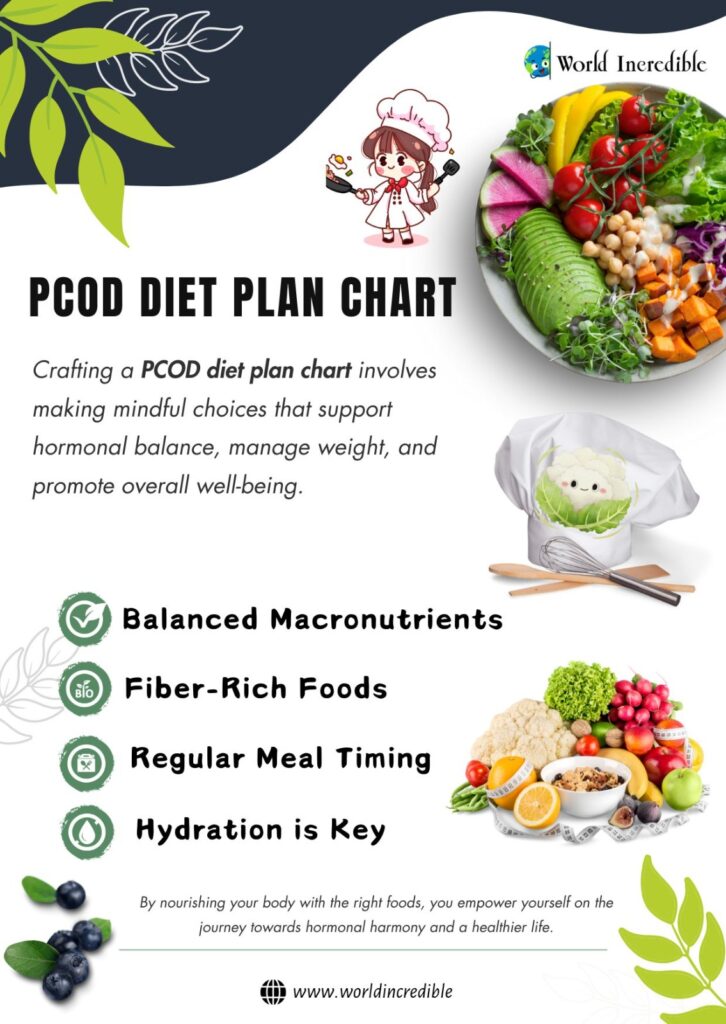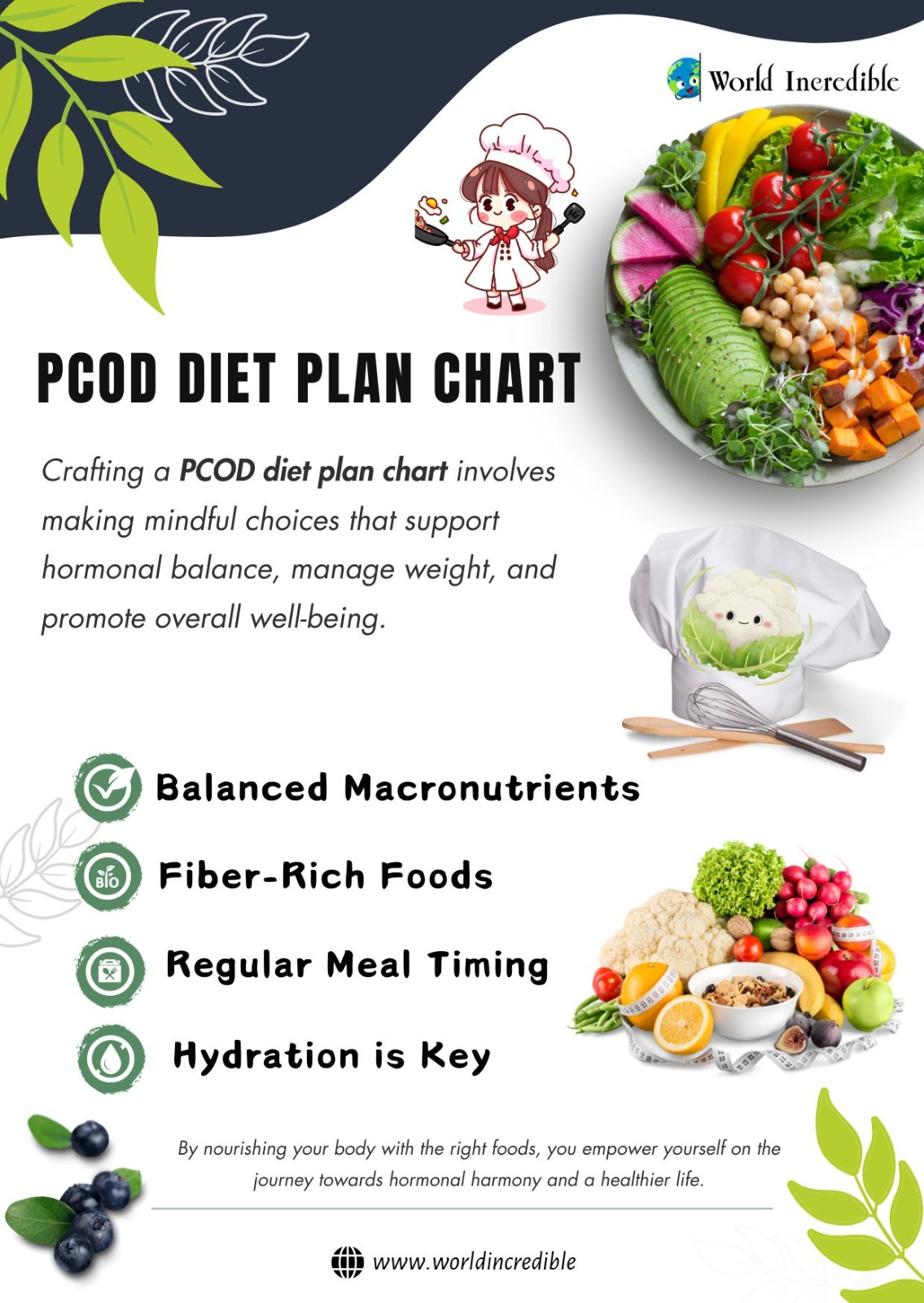Polycystic Ovary Syndrome (PCOS) affects millions of women worldwide, causing a myriad of symptoms ranging from irregular periods and hormonal imbalances to weight gain and fertility issues. While managing PCOS might seem like an uphill battle, one powerful tool in the arsenal against this condition is often overlooked: diet. In this blog, we’ll delve into the intricacies of a PCOS diet chart, exploring how specific food choices and dietary habits can play a pivotal role in managing symptoms and improving overall well-being.

Understanding PCOS: A Brief Overview
Before diving into the specifics of a PCOS diet chart, it’s crucial to understand what PCOS entails. PCOS is a hormonal disorder characterized by enlarged ovaries containing small cysts, hence the name. While the exact cause of PCOS remains unclear, factors such as insulin resistance, hormonal imbalance, and genetics are believed to contribute to its development.
Common symptoms include:
- Irregular menstrual cycles
- Excessive hair growth (hirsutism)
- Acne
- Weight gain or difficulty losing weight
- Infertility or difficulty conceiving
The Role of Diet in PCOS Management
While there’s no one-size-fits-all approach to managing PCOS, adopting a balanced diet tailored to individual needs can significantly alleviate symptoms and improve quality of life. A well-designed PCOS diet chart focuses on stabilizing blood sugar levels, reducing inflammation, and supporting hormonal balance.
Here’s how you can optimize your diet to combat PCOS effectively:
1. Emphasize Complex Carbohydrates
Incorporate complex carbohydrates with a low glycemic index (GI) into your meals. These carbohydrates are digested more slowly, preventing rapid spikes in blood sugar levels. Opt for whole grains like quinoa, brown rice, and oats, as well as legumes, fruits, and vegetables.
2. Prioritize Lean Proteins
Lean protein sources such as poultry, fish, tofu, and legumes should feature prominently in your PCOS diet chart. Protein helps stabilize blood sugar levels, promotes satiety, and supports muscle health, crucial for managing weight and insulin resistance.
3. Include Healthy Fats
Incorporate sources of healthy fats, such as avocados, nuts, seeds, and olive oil, into your meals. Healthy fats play a vital role in hormone production and regulation, aiding in hormonal balance and reducing inflammation associated with PCOS.
4. Monitor Portions and Mindful Eating
Maintain portion control and practice mindful eating to prevent overeating and promote better digestion. Pay attention to hunger cues, eat slowly, and savor each bite. Avoid distractions during meals, such as electronic devices, to enhance awareness of food consumption.
5. Stay Hydrated and Limit Caffeine
Hydration is key for overall health and hormone regulation. Aim to drink plenty of water throughout the day and limit caffeine intake, as excessive caffeine consumption can disrupt hormonal balance and exacerbate PCOS symptoms.
Crafting Your Personalized PCOS Diet Chart
While these general guidelines provide a solid foundation for a PCOS-friendly diet, it’s essential to customize your meal plan based on your individual preferences, dietary restrictions, and specific PCOS symptoms. Consulting with a healthcare provider or registered dietitian can offer invaluable insights and guidance tailored to your unique needs.
Final Thoughts
Incorporating a well-rounded PCOS diet chart into your lifestyle can be a game-changer in managing symptoms and improving overall health and well-being. By making informed food choices, prioritizing nutrient-dense foods, and adopting mindful eating habits, you can take proactive steps toward reclaiming control over your PCOS journey. Remember, small changes add up over time, so embrace progress over perfection, and empower yourself to thrive despite the challenges posed by PCOS.












